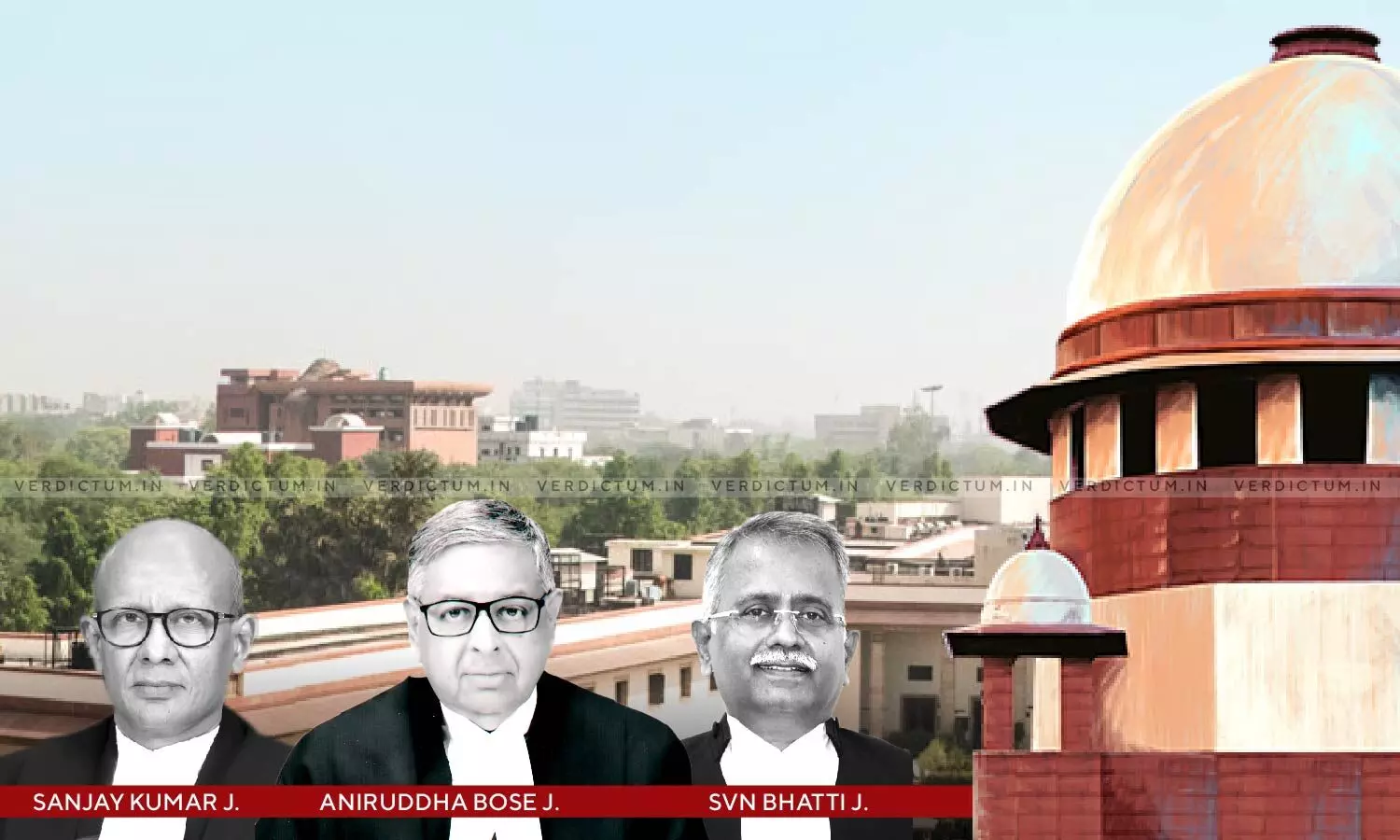
Onus Is On Tenant To Disclose Such Facts As Would Disentitle Summary Eviction U/s. 13-B Of East Punjab Urban Rent Restriction Act: Supreme Court
 |
|The Supreme Court upheld the eviction order issued under Section 13-B of the East Punjab Urban Rent Restriction Act, 1949, stating that the respondent, as the owner of the property, had met all legal requirements for eviction and that the appellant failed to provide valid grounds to contest the eviction, as mandated by Section 18-A of the Act. In this case, the appellant challenged an eviction order from a shop at Guru Amardas Chowk, Model Town, Jalandhar, filed by the respondent. The eviction was sought on the grounds that the respondent, who inherited the property, needed it for business purposes.
A three-judge Bench of Justice Aniruddha Bose, Justice Sanjay Kumar, and Justice S.V.N. Bhatti further held that, “We have considered the grounds raised before us and believe that the tenant is introducing a new case, which this Court is not persuaded to entertain new pleas, particularly in the facts and circumstances of the present Civil Appeal.”
Advocate Kavita Wadia appeared for the Appellant and Advocate Alok Gupta appeared for the Respondent.
The Appellant argued that respondent was not the owner and, therefore, the eviction petition was not maintainable. He also contended that respondent did not qualify as a Non-Resident Indian (NRI) and thus could not invoke Section 13-B. He further claimed that respondent had offered to sell the property at an exorbitant price, which contradicted his ownership status.
The Rent Controller and the High Court rejected appellants arguments, stating that respondent met the legal requirements for eviction under Section 13-B. The courts held that appellant failed to establish grounds to contest the eviction, as required by Section 18-A of the Act.
The Supreme Court emphasized that in cases of eviction under Section 13-B, the tenant must file an affidavit stating grounds for contesting the eviction and obtain court leave. The Court clarified that objections raised must be supported by evidence. The Court added, “The maintainability of an Eviction Application under Section 13-B is not a standalone circumstance that this Court can consider and accept. At any rate, the disqualification for summary eviction proceeding is traced to the alleged serving of vacant possession of a shop in the same building. This argument cannot be appreciated for more than one reason”
The Court said that the Rent Controller can grant leave to defend if the tenant's affidavit shows facts that would disqualify the landlord from obtaining possession under Section 13-B. In this case, the Court found that the landlord met the requirements of Section 13-B, and appellant failed to present facts disentitling summary eviction under this section.
The Supreme Court upheld the lower courts' decisions, emphasizing that the burden was on the appellant to prove grounds disentitling respondent from obtaining eviction under Section 13-B.
The Court said, “In our considered view, the Courts below on being satisfied that the requirements of Section 13-B are complied with, rightly rejected the leave to defend as Mukesh Kumar failed to make out a case under Sub-Sections (4) and (5) of Section 18-A of the Act.”
The Court found that appellant introduced new arguments at the Supreme Court level, which were not permissible, and ruled in favor of respondent, dismissing the appeal.
Cause Title: Mukesh Kumar v. S. Kuldeep Singh, [2023INSC873]
Click here to read/download Judgment